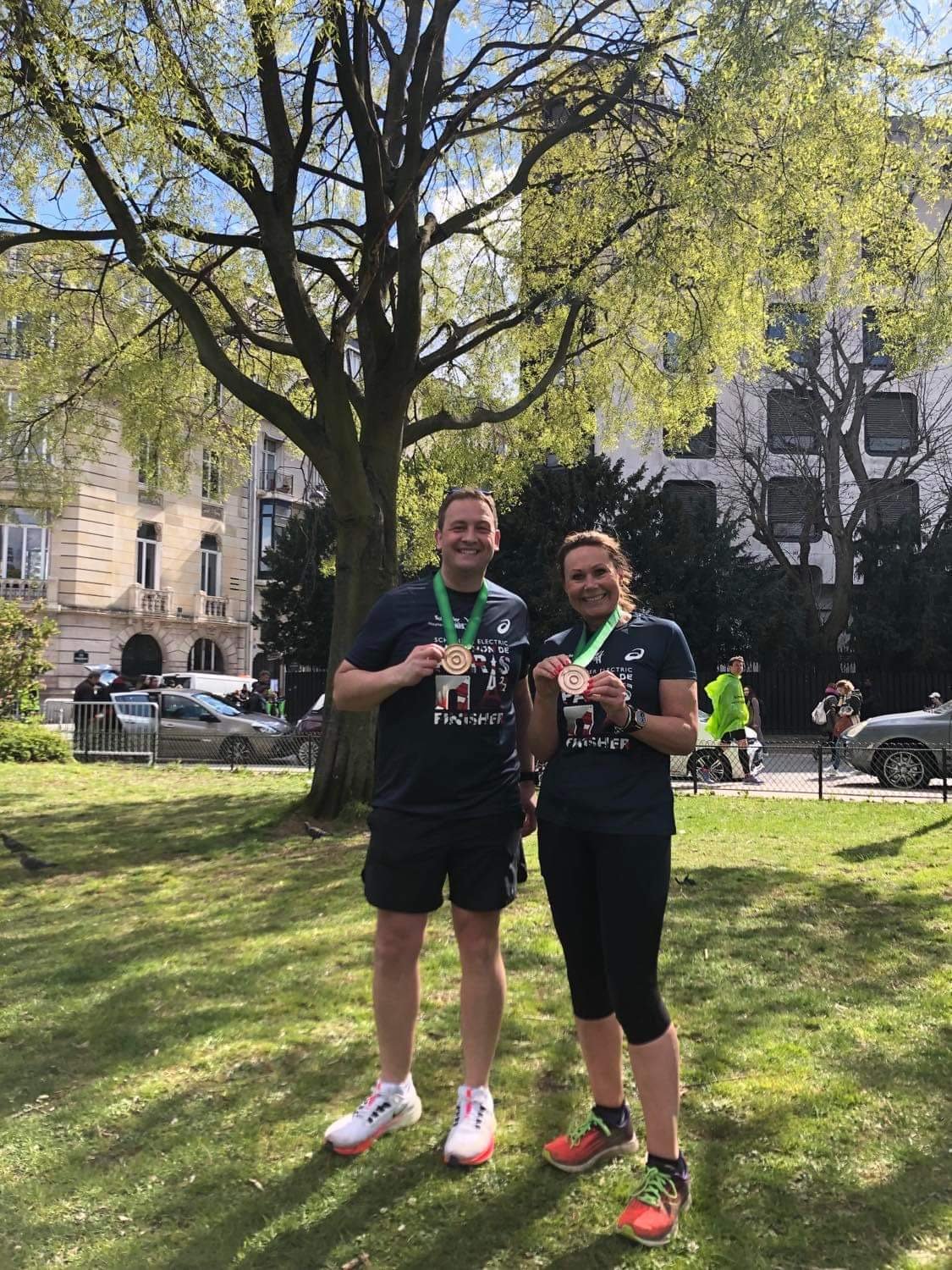You don’t have to run a marathon…but if you do.
Becoming a marathoner isn’t easy, but I believe that anyone can be a marathoner, no matter who you are; if you are in the right supportive environment, with the right coach, you can achieve running goals that may have just been a whimsical dream.
But be warned, marathon training can be addictive, it’s a test of mental and physical endurance and the training involves a lot of time and effort – BUT there is something special about being a marathoner; it’s a very personal journey that stretches far beyond the finish line.
Here are just some of our RunVerity members who have completed marathons since 2017! Look at all the smiles and some have even gone on to run more than 1!
However I’m not going to sugar coat how hard it is to become a marathoner, it isn’t just the physical toll it has, the psychological impact should never be underestimated! Training for and running a marathon is hard, it takes over your life before, during and after.
The images below are from a marathon workshop in 2019. Spliting into groups of those who had run a marathon and those who were thinking of running a marathon.
Image 1 shows some thoughts on the highs and lows of training and running a marathon and images 2 & 3 highlight some fears and worries of what the training entails as well as the race itself.
My advice on the basic requirements before you start marathon training.
Be in reasonably good health before you start marathon training, I wouldn’t advise you start training if you’re injured or ill, sort your niggles out first. Trust me the long miles will soon find your weakness.
Food is fuel! Simple as that, you need good, proper, wholesome food whilst you train for a marathon, I’ve seen too many people break due to not eating enough because they were worried about putting on weight. You have to respect your body.
Lay the endurance foundations first, this solid base of running is vital in my opinion. I would forget races and goals for at least 6 months before you start marathon training. Running consistently 3 times a week will enable you to transition into higher mileage weeks with ease whilst reducing the chance of injury.
Establish a long run base of the half marathon distance, this will also ease your transition to the longer runs as you start marathon training.
If life is too busy for 18 weeks of marathon training be realistic about what you can achieve and what you can fit into your week; there will be other marathons.
Run your long runs consistently, with minimal stops along the way. And yes, you can train your bladder/bowels as well as learning how to fuel properly, don’t leave anything to chance.
You cannot expect to be race ready at the start of the training plan; it takes time. Your goal race pace is the goal and the result (hopefully) of your race specific training plan (so follow the plan!). Your current race pace is what you can currently do, by training at your current pace you can increase to your race pace (so follow the plan!).
Pacing is key to marathon success; you should have a specific pacing strategy and your training plan should be fully supportive of your ability to run the pace on race day. Your training plan may have you in the best marathon form of your life, but if you execute a flawed racing strategy on the day you will, more than likely, fall short of your goals.
You will cry for no reason whatsoever at least twice in the 18-week training period, friends and family will question your motivation and be worried about you. They may even advise you to stop training, all of this is normal.
Of course, you can wing it and take on board a lot of unsolicited advice, there is a lot out there but in my experience, recovery takes a lot longer after the marathon and you are increasing your risk of at best, prolonged illness, at worse, stress fractures and ACL issues.
Enter some races prior to the start of your marathon training plan. You need to learn how to deal with;
Race day nerves.
Different/later start times.
Travelling time.
Food/nutrition on the move.
Toilet stops.
Recovery time with family/work commitments.
Crowded races.
Public toilets
Racing in different weathers/temperatures.
and most important other annoying runners!
Choose your marathon race carefully, the big events are amazing but factors outside of your control could ruin your experience that might have a detrimental effect on your overall running journey. Your training runs are very different from the race itself, running around the local streets early in the morning when no one else is around can be a world apart from running with 45,000 other runners; standing within proximity of runners snorting, snotting and bragging about the distance “only being 8 parkruns” can have an impact on your state of mind.
Finally, be prepared for the sirens of all the emergency services, people do collapse, some runners do die and whilst these thoughts are somber, it is the reality of these big marathon events.



































